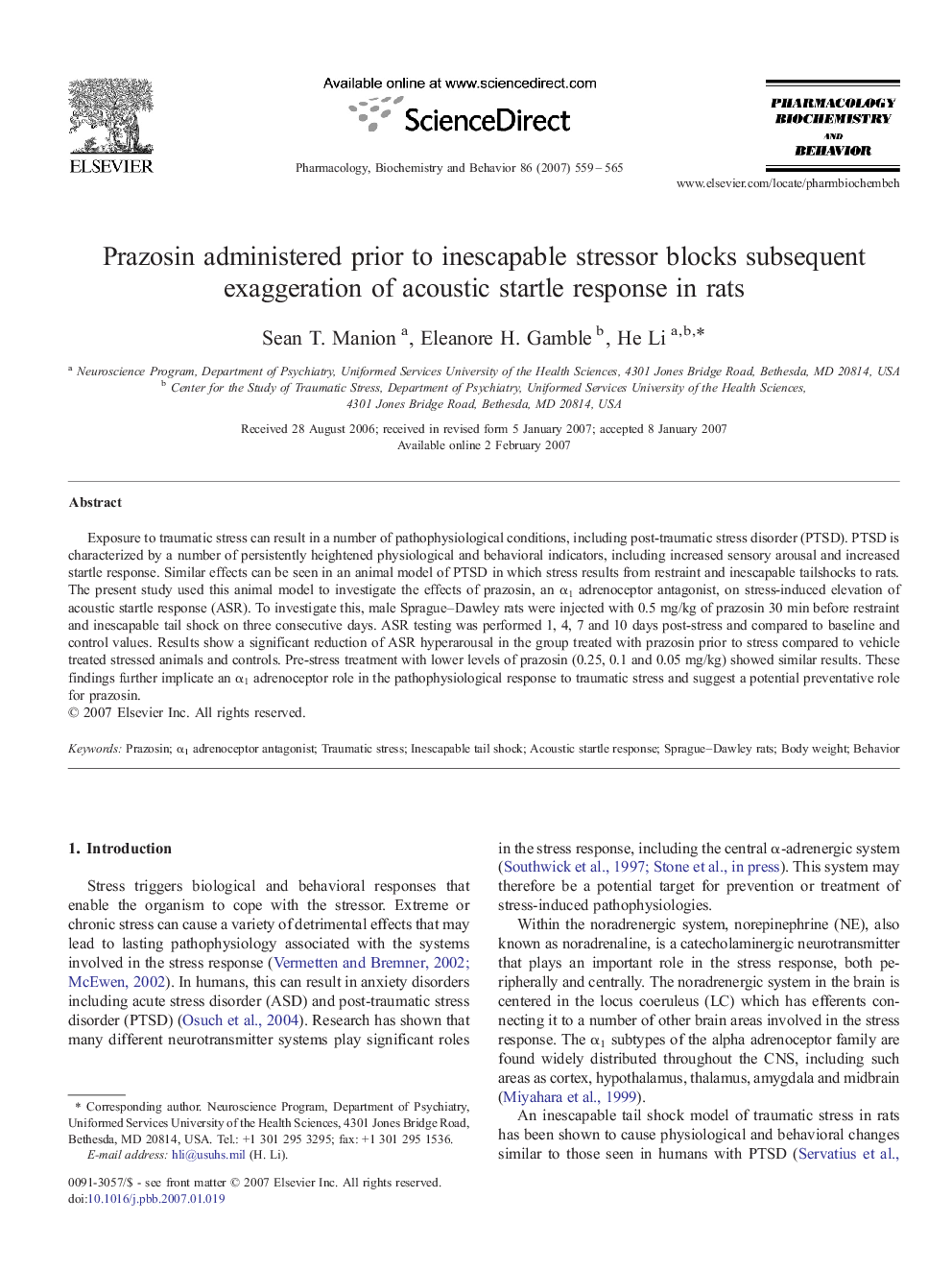| Article ID | Journal | Published Year | Pages | File Type |
|---|---|---|---|---|
| 2014075 | Pharmacology Biochemistry and Behavior | 2007 | 7 Pages |
Abstract
Exposure to traumatic stress can result in a number of pathophysiological conditions, including post-traumatic stress disorder (PTSD). PTSD is characterized by a number of persistently heightened physiological and behavioral indicators, including increased sensory arousal and increased startle response. Similar effects can be seen in an animal model of PTSD in which stress results from restraint and inescapable tailshocks to rats. The present study used this animal model to investigate the effects of prazosin, an α1 adrenoceptor antagonist, on stress-induced elevation of acoustic startle response (ASR). To investigate this, male Sprague-Dawley rats were injected with 0.5 mg/kg of prazosin 30 min before restraint and inescapable tail shock on three consecutive days. ASR testing was performed 1, 4, 7 and 10 days post-stress and compared to baseline and control values. Results show a significant reduction of ASR hyperarousal in the group treated with prazosin prior to stress compared to vehicle treated stressed animals and controls. Pre-stress treatment with lower levels of prazosin (0.25, 0.1 and 0.05 mg/kg) showed similar results. These findings further implicate an α1 adrenoceptor role in the pathophysiological response to traumatic stress and suggest a potential preventative role for prazosin.
Related Topics
Life Sciences
Biochemistry, Genetics and Molecular Biology
Biochemistry
Authors
Sean T. Manion, Eleanore H. Gamble, He Li,
